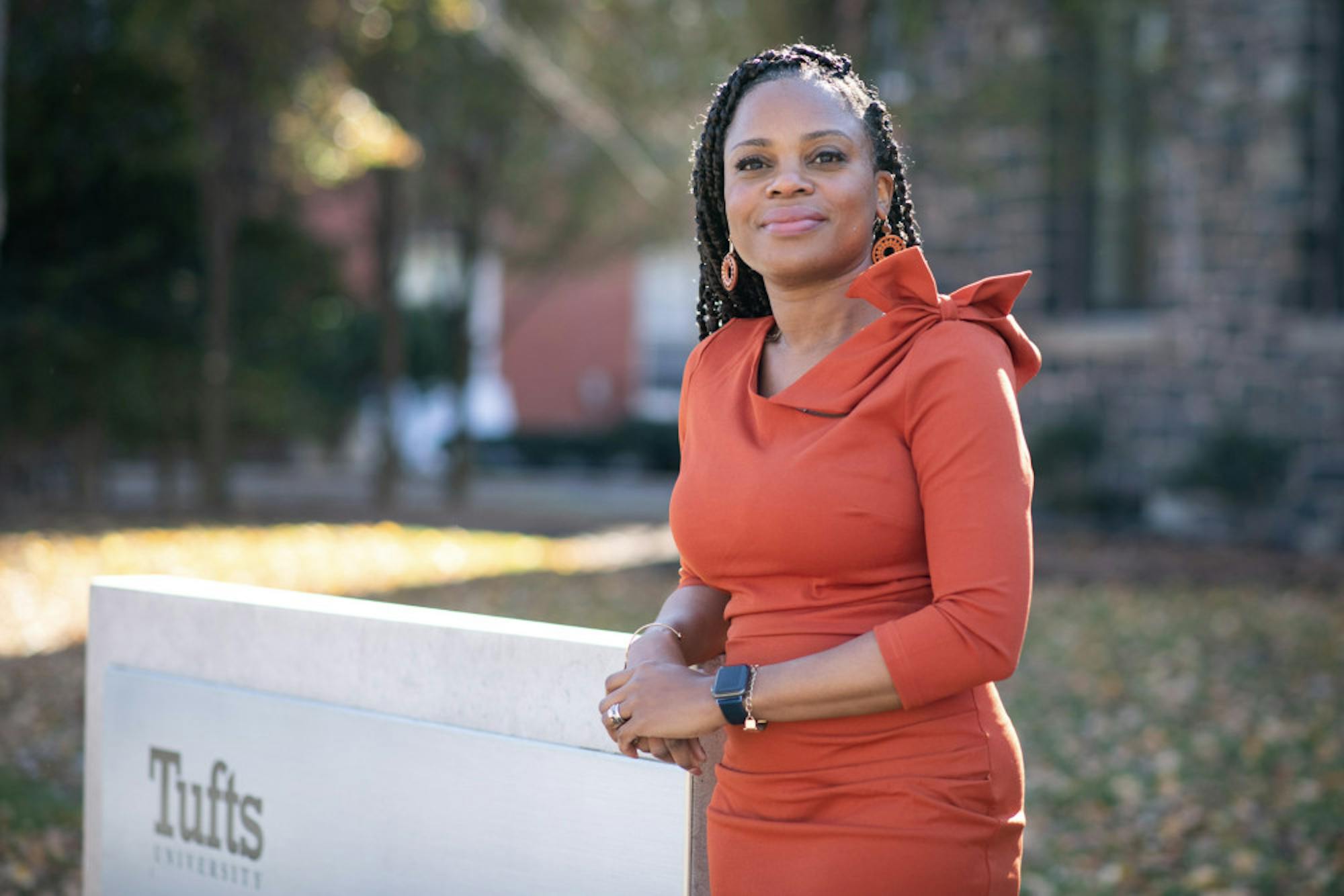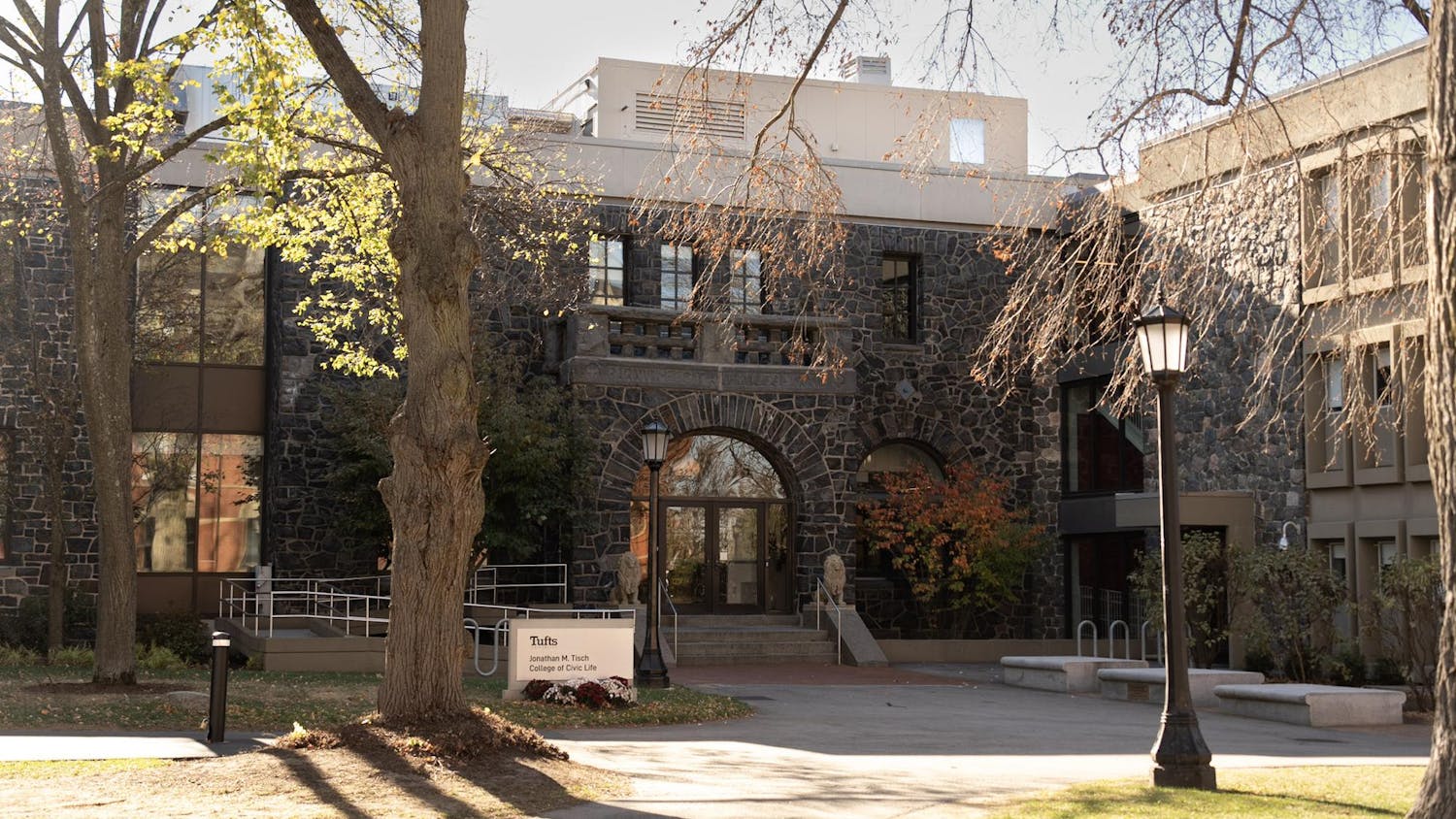On Oct. 25, the Jonathan M. Tisch College of Civic Life announced that Kenann McKenzie, educator and civic leader,will direct the newly created Generous Listening and Dialogue (GLAD) Center. The GLAD Center was established this May andintended to "serve as a hub and educational resource for the Tufts University community to promote authentic dialogue and generous listening across differences."
McKenzie said that immigrating to the United States exposed her to the disparities in the country's access to education and cemented her interest in the education system.
“I would say my own childhood experience [made me interested in education],” McKenzie said. “I immigrated from another country ... when I was almost seven ... And that was the first time I became aware that there were different educational systems.”
According to McKenzie, her teachers suggested holding her back a year because she was from another country. However, McKenzie’s mother made the decision to put her in a private school in Brooklyn, which was an eye-opening opportunity for her.
“I was really sheltered from some of the cultural shock that was going to happen around me, and so in one fell swoop, I learned the importance of having a sense of community and safety in school, but also the ways people make assumptions about newcomers,” McKenzie said.
McKenzie first discerned race as a concept when she moved to a public school in sixth grade.
“I didn't understand at that time that people created a hierarchy around color and ethnic origin,” McKenzie said. “It just seemed so shocking and strange to me that people thought being smart belonged to a particular race of people that they called white.”
As a college student, McKenzie surrounded herself with people from diverse backgrounds, which allowed her to enter new conversations.
“I had friends in college who were considered white, considered Jewish, who were non-Christians, who were Hindu," McKenzie said. "I’ve grown up in primarily a Christian orientation, but I willingly went to temple with Jewish friends. I went to yoga classes. I just felt like there was so much to learn from other people.”
At the GLAD Center, McKenziehopes to create a space for students to listen and discuss different perspectives and experiences.
“The idea is that we learn to value listening as a truly necessary way of being, and that dialogue also ensues from that listening,” McKenzie said. “We do not limit listening to just hearing voices and responding, but listening to our own selves, listening to the world around us.”
As director of the GLAD Center, McKenzie is open to shaping the center based on the needs of the Tufts community.
“I really honor and respect student voices and want to make sure that anything they are already working on or that they value isn't in any way negated by this process,” McKenzie said. “As I embark on my own listening tour, I want to learn more about Tufts and what will be the most helpful way that the center can engage with students.”
Deborah Donahue-Keegan, associate director of the GLAD Center, is currently teaching a course centered around education for peace and justice.
“I've done a lot of dialogue, through different avenues like talking with STEM ambassadors, visiting their courses and presenting on social [and] emotional learning and equity,” Donahue-Keegan said. "I'm also on the Mindfulness and Resilience Collaborative ... so I also really bring contemplative dimensions to my teaching and to my facilitation."
Donahue-Keegan emphasizes the concept of social and emotional learning and its connection with equity in the classroom.
“My teaching has really all been about … fostering emotional resilience and well-being,” Donahue-Keegan said.
She also connected this concept to the GLAD Center, noting how it is exploring concepts of social and emotional resilience in the context of anti-racism.
“We're doing a lot of focus around antiracism and how developing social and emotional stamina or resilience is vitally important for developing racial literacy and being anti-racist in our work at Tufts,” Donahue-Keegan said. “I have been really involved in dialogue and working with [ McKenzie will] be a collaborative process.”
Diane Ryan, associate dean of Tisch College, will work alongside McKenzie and Donahue-Keegan at the GLAD Center.
“I'm pretty much responsible for all of the internal operations of Tisch College, and that includes supervising all of the programs and the centers and the administrative function of Tisch College,” Ryan said.
Ryan explained that beside fostering dialogue and active listening, there will be a minor research element at the GLAD Center.
“This [center] will be more focused on facilitation and helping to train facilitates in the art and practice of generous listening and dialogue,” Ryan said. “There will be a research portion, but it will not be the main function.”
Ryan said she believes that the GLAD Center is critical to helping students communicate with one another during this polarizing time.
“In the country and in the world, people are forgetting how to talk to each other,” Ryan said. “We have to do something to get back to where we are able to communicate [and] try to share perspectives and reach common understanding to be able to move forward, and to be able to maintain the ground we have. We don't want to open some kind of completely polarized anarchy.”






